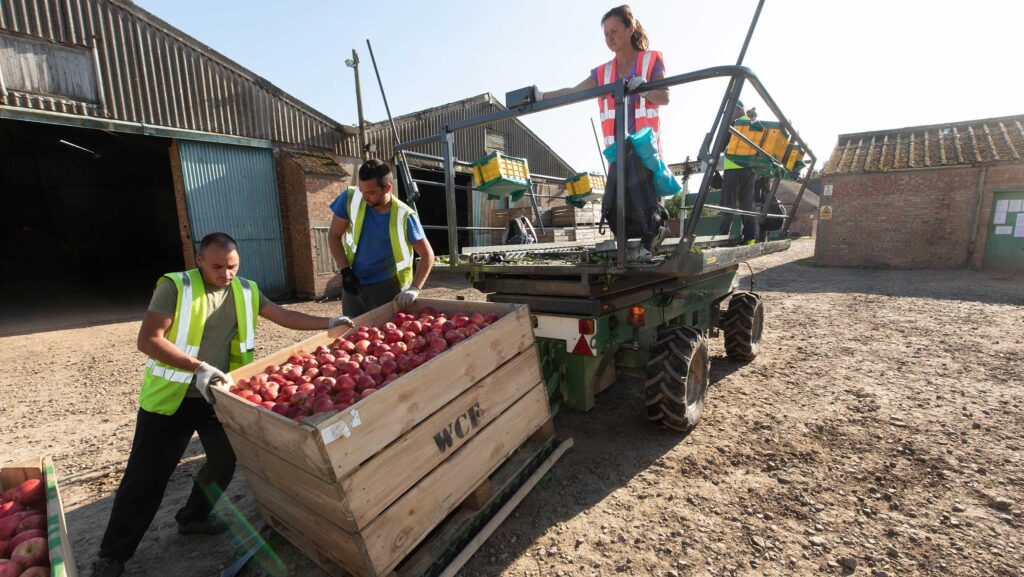Seasonal worker quotas set for 2026 after NFU lobbying
 © Tim Scrivener
© Tim Scrivener The NFU has confirmed that the annual quota for the Seasonal Worker Scheme (SWS) for 2026 has now been finalised, following a meeting between union president Tom Bradshaw and farming minister Dame Angela Eagle.
According to Defra, 41,000 visas will be made available for horticulture and 1,900 for poultry next year.
The allocation offers the horticulture and seasonal poultry sectors meaningful planning certainty ahead of what the NFU describes as a “critical” year.
See also: Farmers await clarity on seasonal worker quota
The scheme enables overseas workers to come to the UK for short-term assignments, typically to harvest fruit and vegetables, and support the poultry sector during peak periods.
Mr Bradshaw acknowledged that although there is a “small reduction” in visas compared to previous years, the confirmed numbers should allow growers and farm businesses to move forward with planting and labour plans.
Visa allocations
He stressed the importance of clear visa allocations running through to 2029 so that producers of fresh fruit, vegetables, plants, flowers and poultry can maintain continuity of supply.
The meeting, on 28 October, followed Dame Angela’s visit to an NFU member’s soft fruit farm in Kent, accompanied by Mr Bradshaw and NFU Horticulture & Potatoes Board chairman Martin Emmett, where the workforce challenge facing growers was underlined.
In addition, following NFU lobbying, changes to the SWS will allow workers to re-enter the UK more quickly between seasons.
Independent analysis of the SWS notes that the scheme has evolved amid labour-shortage pressures.
Annual quota
A government review indicates the route began as a small pilot in 2019 and has expanded since, while remaining subject to an annual quota set by the Home Office and Defra.
Industry observers say the confirmation of the 2026 quota is helpful, but questions remain over whether the numbers will keep pace with labour demand, and the extent to which growers will reduce reliance on migrant labour through mechanisation or other methods.
